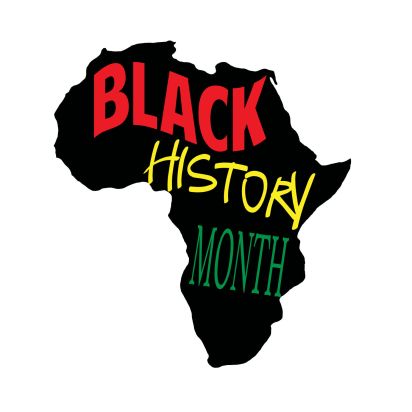Black history deserves more than just a month
February 23, 2021
We have to do better when it comes to recognizing Black history in the United States.
Black History Month should not be the only time that people and corporations choose to highlight the contributions of African Americans. Black history cannot be condensed into 28 days. Our history goes back to August 1619, the time when more than 20 enslaved Africans arrived in the English colony of Virginia. Black people have been inseparable from the history of this nation before it was a nation and should be widely evoked at any point during the 365-day year. What better place to start doing this than in schools?

Maria Montessori Academy, a Utah charter school with students from kindergarten through ninth grade, experienced some national backlash after some parents chose to opt their children out of the school’s Black History Month curriculum. Data from the Utah State Board of Education shows that 70% of the student population is white and that of the 322 total students, three are Black.
The school’s officials would only go as far as to say that a “few families” asked to not participate in instruction related to Black History Month, and the officials declined to specify the reasons given by the parents for opting out. The situation was eventually resolved after the parents withdrew their requests to opt out and the option had been removed.
This news story is illustrative of several things.
Let’s start by casting some aspersions on this Utah charter school. The commitment this school has to teaching Black history is shallow at best and disingenuous at worst. The intrigue in teaching Black history should not only be done in February. The Black History Month curriculum appears to simply be a gimmick. Teaching Black history is not only a month-long experiment you try out. It is inextricable from any point in the development of the U.S. In fact, a Black lens can be applied to any of the primary school subjects. Now to the parents.
These parents who opted their children out apparently do not think Black history is American history. They do not deem the lives of African Americans from the past as something that is pertinent to their child’s understanding of the country they reside in. They don’t think their kids need to know the history of the Black experience because they aren’t Black in all likelihood.
After the social unrest and the national conversation about race over the summer, people like these parents still cling to their racist views. Preventing your kid from recognizing the central role Black people have in this country is an egregious act of racism. They are intentionally doing what is in their power to guarantee their child’s ignorance, which is the epitome of animosity for Black people’s significance dating back four centuries.
To paint an even more dismal, but realistic, picture from this story, these parents are likely worried for no reason about their child’s awareness of this subject. The truth is that the Black history normally taught in schools goes either unmentioned or is incomplete and whitewashed. Why assume that this predominantly white Utah charter school will actually implement teachings that are at all groundbreaking let alone impactful?

Since the social uprisings of the summer, there have been stories written about how schools are trying to infuse Black history more into the broader social studies curriculum. In Connecticut, the State Board of Education unanimously approved a curriculum in November 2020 that will make it the first state to mandate high schools to offer courses that focus on African American, Black, Latino and Puerto Rican studies.
Both of these developments are good, but for many old and young people, Black history has already been ignored or sugar coated for many years. People who did learn in schools are the exception not the rule.
How much do you or an average person know about Black history? You likely know some things about Martin Luther King Jr. that specifically relates to his “I Have a Dream” speech. Maybe you have an idea of who Malcolm X is and you now know Fred Hampton because of the Feb. 12, release of the movie “Judas and the Black Messiah.” In social studies, you might have learned a bit about abolitionist Frederick Douglass and the Brown v. Board of Education from the start of the Civil Rights era. How much else do you know outside of that?
How many Black women in history do you know besides Harriet Tubman and Rosa Parks? Do events like the Tulsa race massacre — also known as the Black Wall Street massacre — and people like W.E.B. Du Bois, Phillis Wheatley or Emmett Till sound familiar to you? If they do, great. You more than likely only learned this outside of the classroom, which shouldn’t be the case.
The purpose of that exercise was not to say that you have to start memorizing facts or historical figures. The point is that we collectively have to do a better job at treating Black history in and out of school. Awareness can dramatically rise if we stop saving Black people’s history for the shortest month of the year.
Lee Adams, Vice Media correspondent and host, summed up the state of Black History Month perfectly in a YouTube video.
“If we don’t reach further back into Black history, then we are not teaching Black history. We are teaching American history as white people would like to remember it,” Adams said.


















